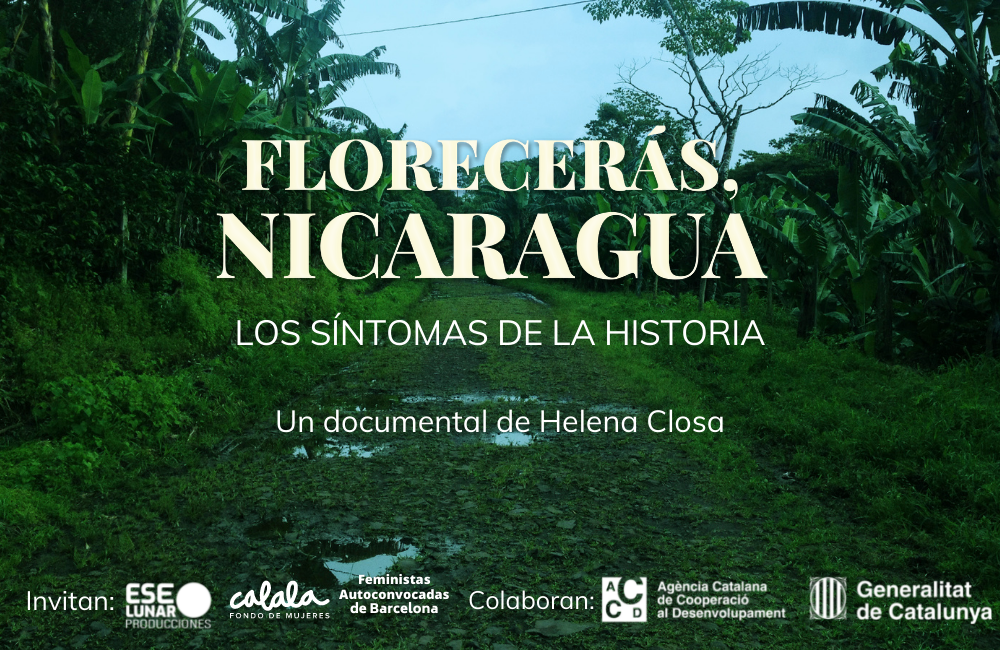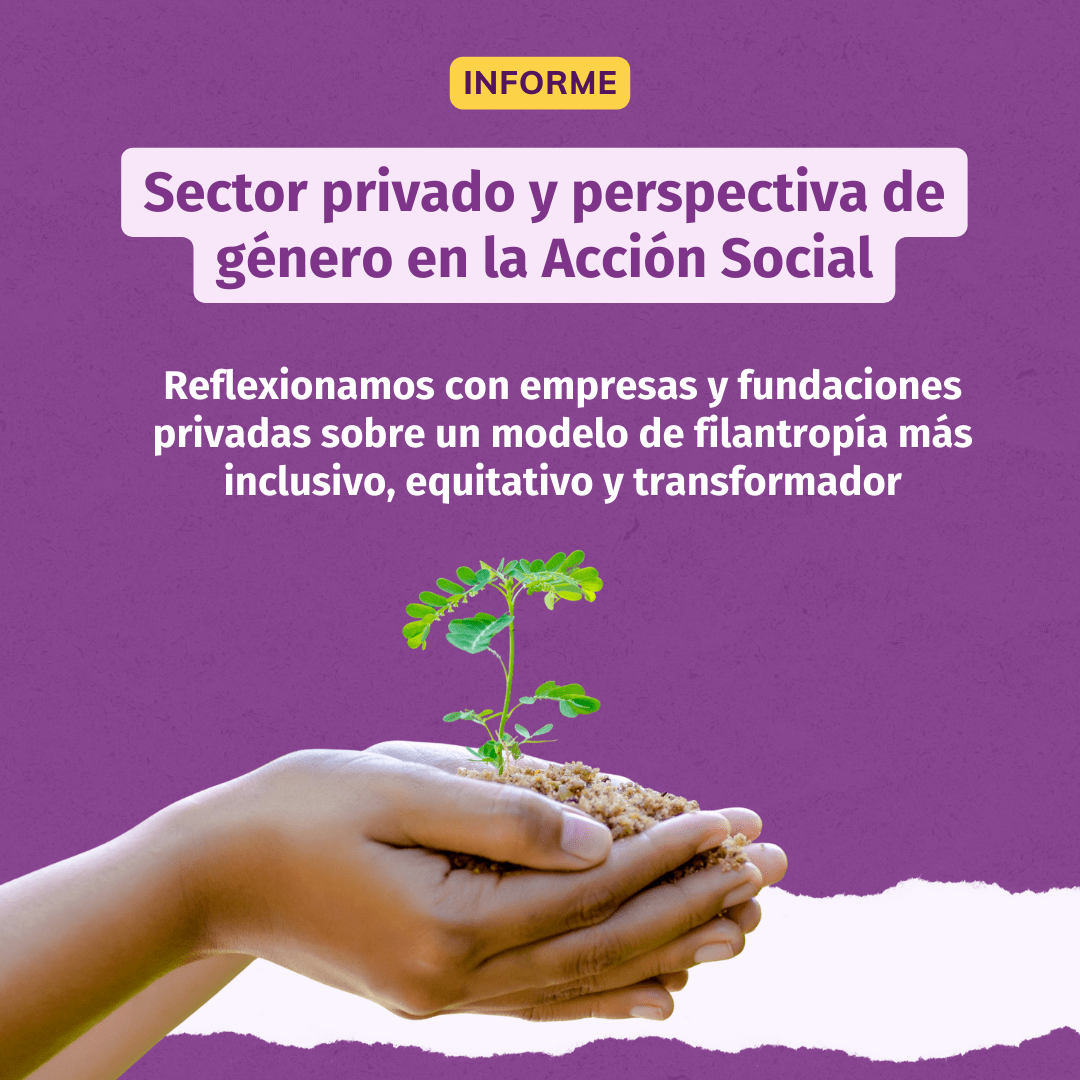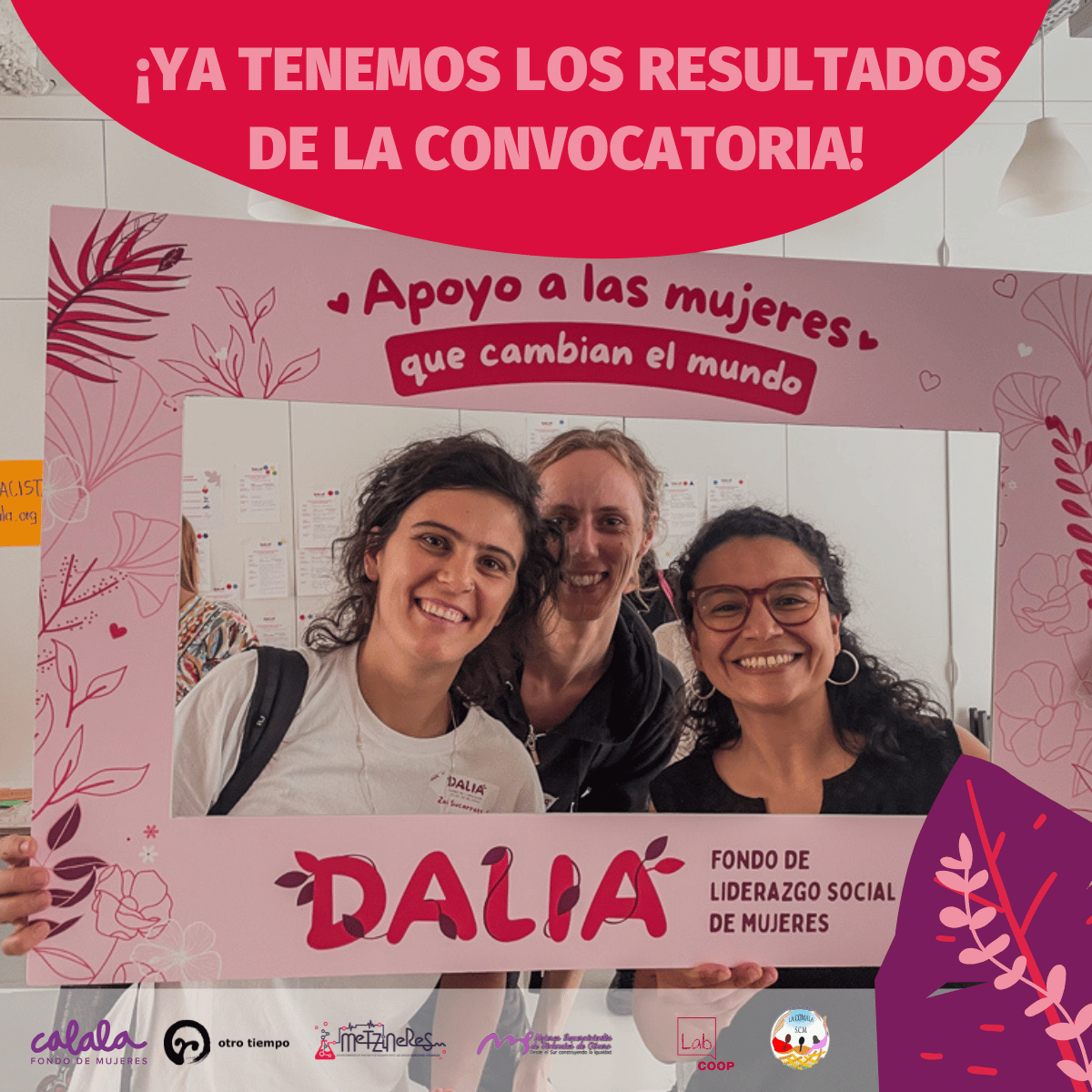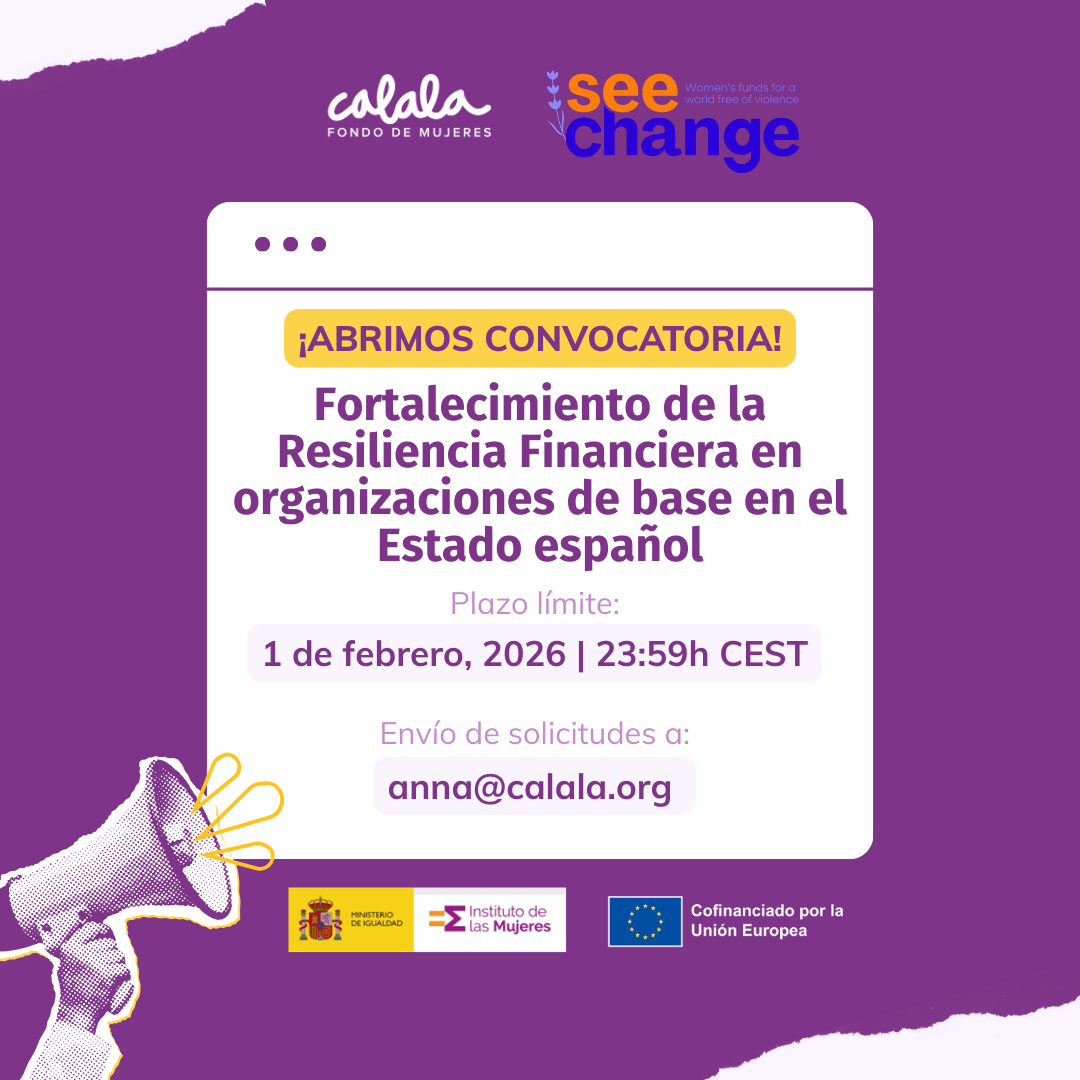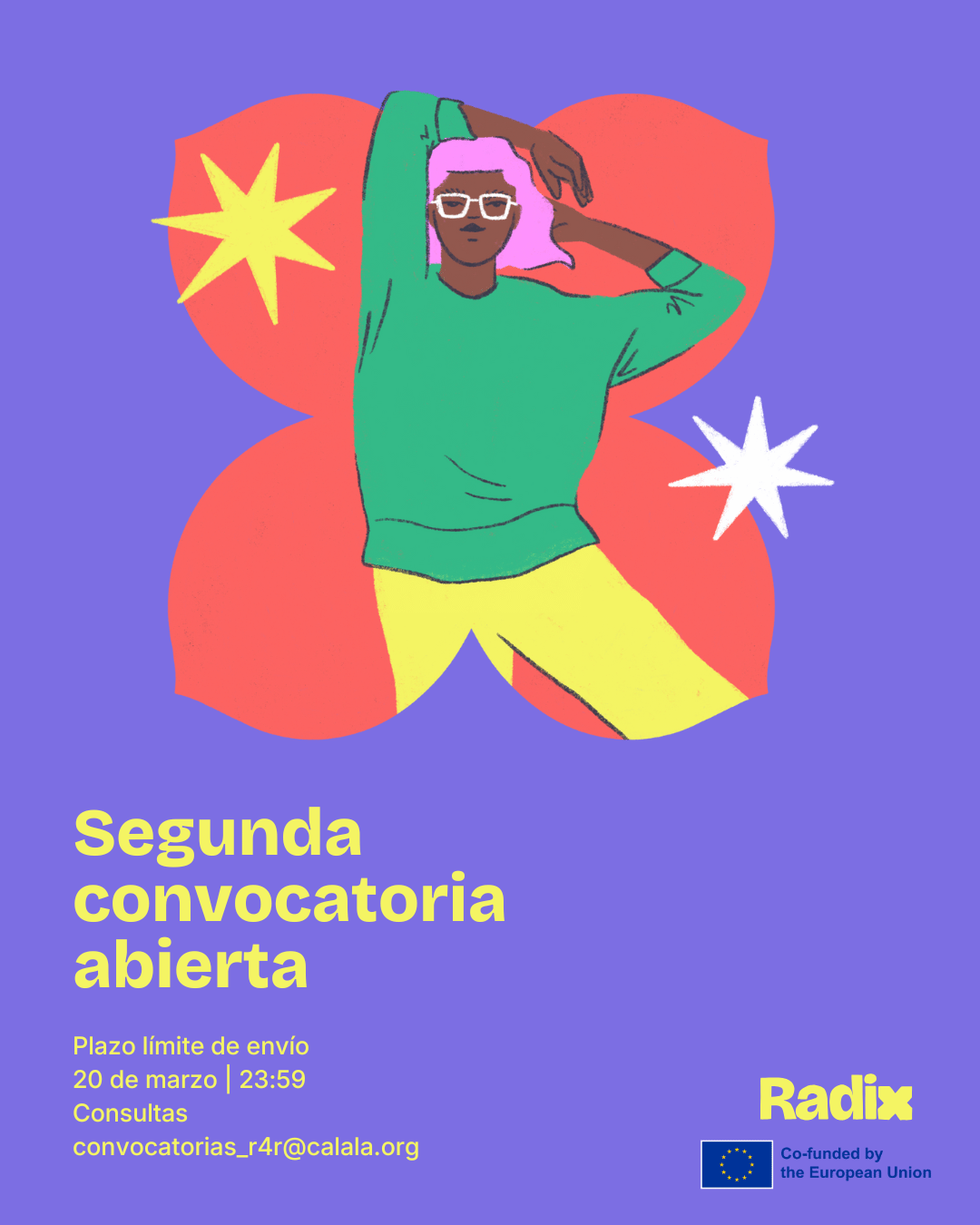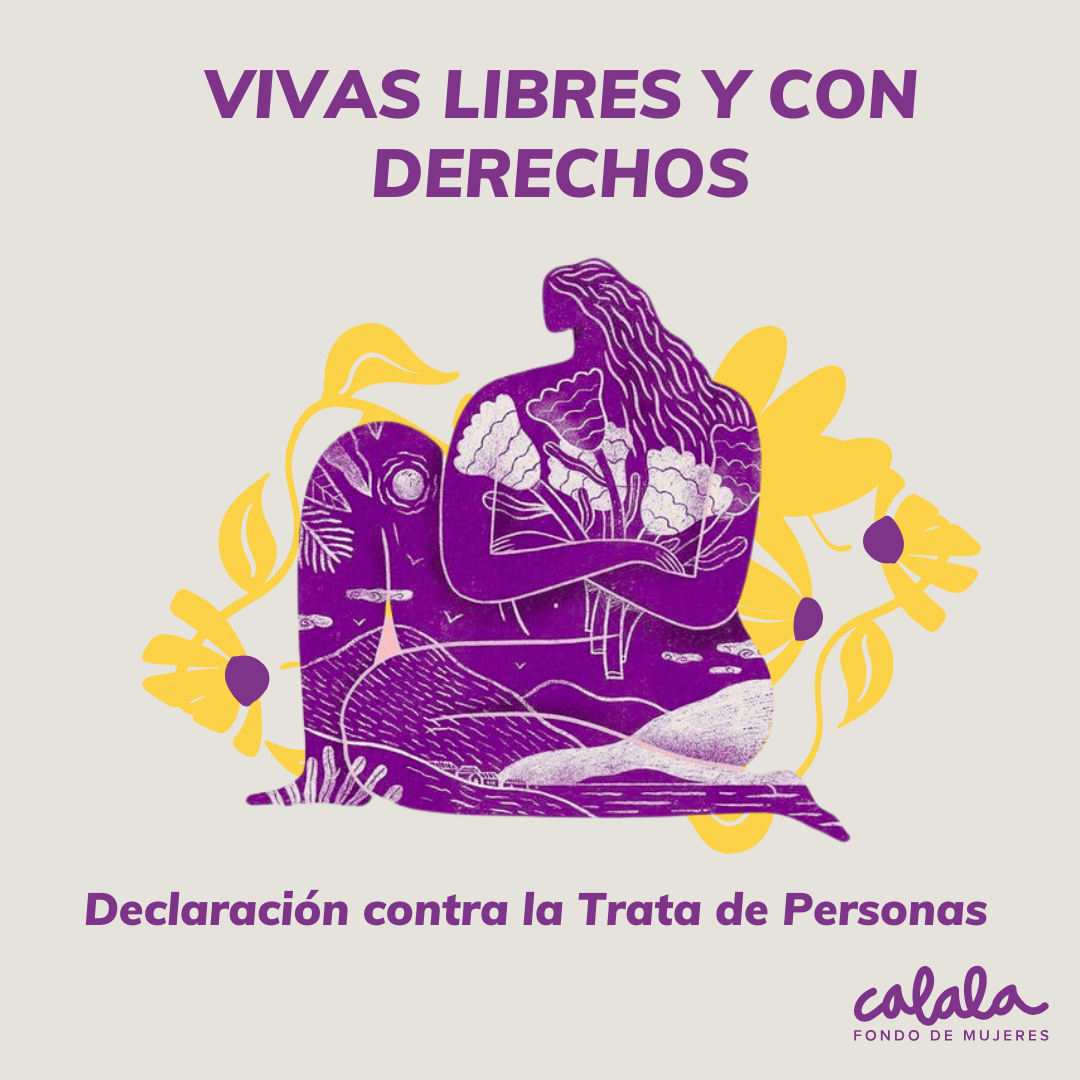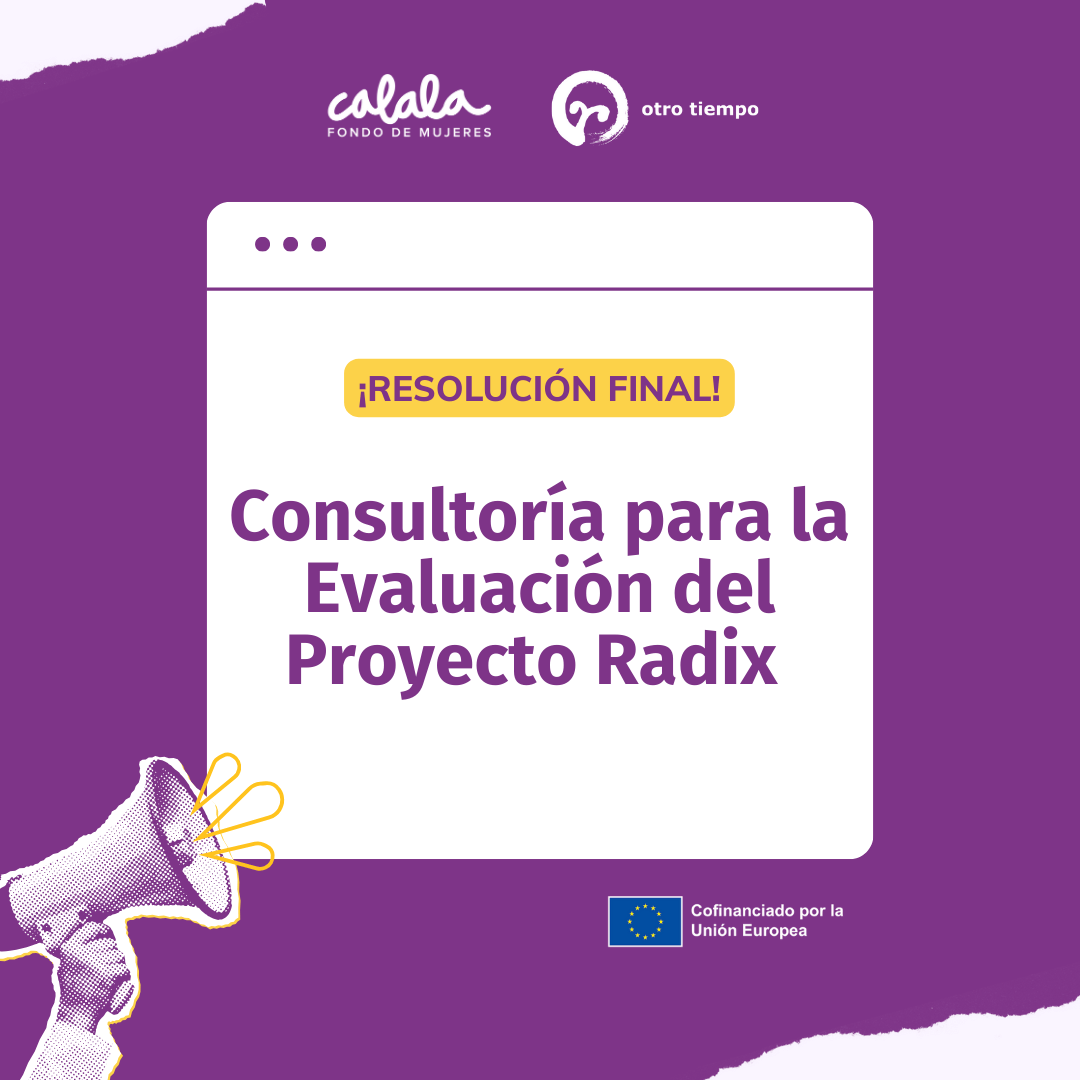You will blossom, Nicaragua
Nicaragua has been suffering a deep socio-political and humanitarian crisis since April 2018, which has led to much violence, deaths, unjustified imprisonment and political exile.
The documentary explains the experiences of four Nicaraguan women who had to leave their country and are currently living in exile in Spain.
Through their stories, the intergenerational transmission of trauma and the need to review the past in order to deactivate the circle of violence in which the Nicaraguan people find themselves immersed, transcending the culture of heroes and martyrs, becomes evident.
The preview, attended by more than 270 people, was screened at Cines Girona.
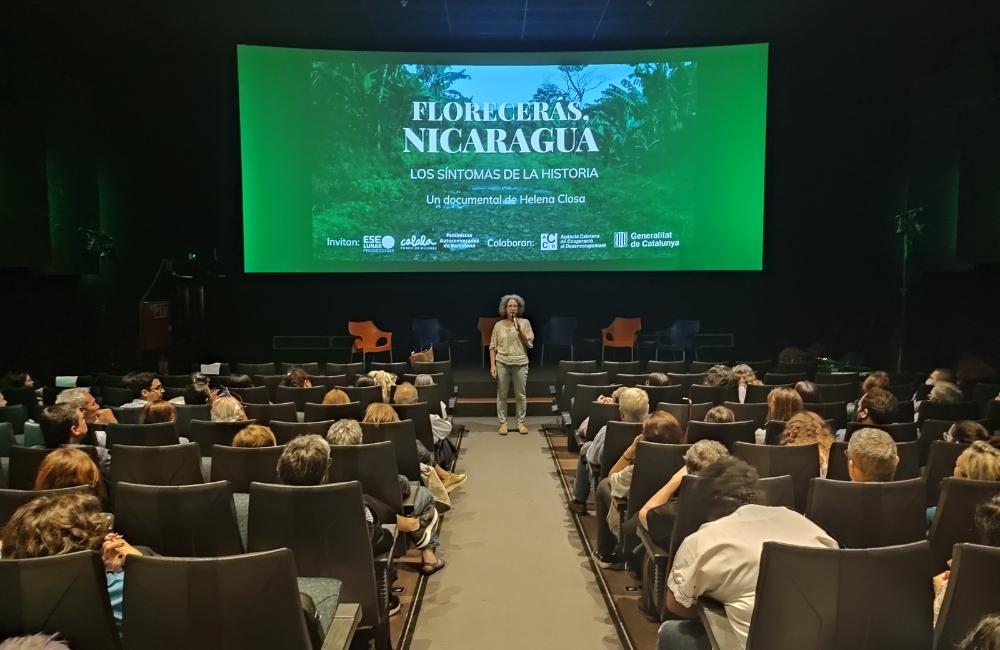
Helena Closa was living in Nicaragua during the events of April 2018:
“The documentary offers a look at a human and universal theme, such as idealisation and deception, together with the dynamics of power that act on women's bodies. It contributes to the creation of memory through testimonies to break the silence that condemns repetition. It is an initiative that, at the same time, covers a global problem that is repeated in many societies”.”
After the screening of the 80-minute film, there was a discussion with the director and the four protagonists of the documentary.
In addition to answering questions from the audience, the protagonists talked about their experience while filming the documentary and how it was, in part, a tool for their healing processes.
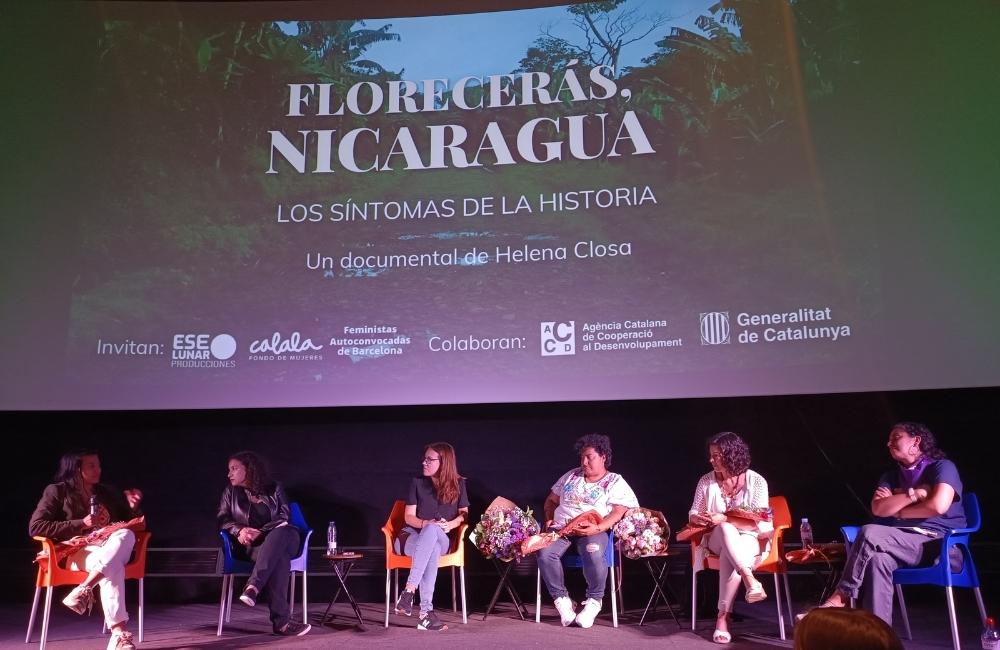
The audience thanked Helena and the protagonists for presenting this vision of conflict and the importance of recovering historical memory in order to heal, both individually and collectively.
The documentary took three years to make. To finance it, the director launched a crowdfunding campaign and subsequently obtained funding from Calala Women's Fund, which has supported him in his line of work on issues of human rights defenders Central American countries.
